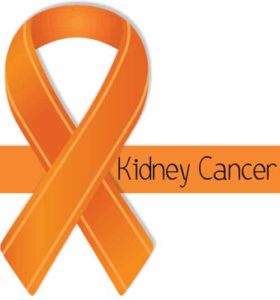Will Know In February 2020 How Well My Cancer Treatment Is Working

This year, like most, has had ups & downs. The big downer this year was when I was told I have Metastatic Renal Cell Carcinoma, aka Stage 4 Kidney Cancer.
My two prior posts:
Today I want to talk about kidney cancer and treatments. When a person has a small tumor in a kidney (stage 1) the solution is usually to surgically remove the tumor. Unfortunately, kidney cancer is often hard to detect — so it spreads — metastatic or stage 4.
One of my kidneys is now completely tumor. We can live with one kidney but surgery would’ve delayed treatment. My tumors have been growing and spreading since my initial CT scans so further delay wasn’t an option.
I’ve had two treatments so far — the 2nd was on Monday. Side effects have been minor, mostly greater fatigue. My 3rd treatment is next month.
Chemotherapy, right? No. Radiation? Nope. Immunotherapy!
Wait, what?
Cancer treatments like chemotherapy and radiation use medications or high-energy X-rays to kill cancer cells. Immunotherapy is different because it uses your own immune system to fight off the cancer.
Some immunotherapy treatments help your immune system find the cancer or work harder to attack it. Others give you man-made versions of proteins or other substances to help your body fight the disease. Immunotherapy is a type of biologic therapy.
Immunotherapy is approved to treat certain kinds of cancer, including melanoma, lymphoma, and lung cancer. Immune-based treatments for many other types are being tested in clinical trials. (WebMD)
As chemotherapy has been ineffective with kidney cancer, I’m fortunate to be getting the latest in immunotherapy treatment. My treatment is two different drugs administered intravenously every few weeks. I’m also in a clinical trial testing a third drug taken orally every day. It’s a double blind study — neither I nor my doctor know if I’m getting the third drug or the placebo.
In February I’ll get another scan — our first chance to see how well my immune system has attacked the cancer. A good result will be either no growth or shrinkage of the tumors.
— Steve Patterson